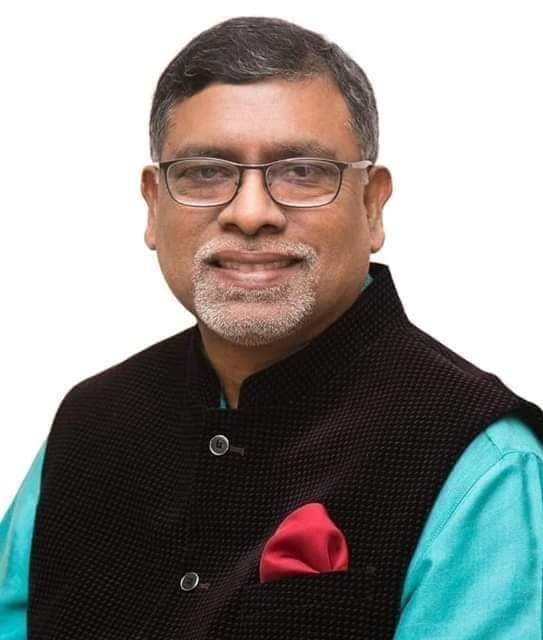The Ministry of Health & Family Welfare Bangladesh in short form MoHFW plays a pivotal role in safeguarding the health and well-being of the nation’s citizens. Committed to ensuring access to quality healthcare and promoting family welfare, this ministry oversees several vital departments and initiatives that impact the lives of millions. Many call this ministry as Health Ministry BD, Ministry of Health Bangladesh, or Bangladesh Ministry of Health and Family Welfare.
The Ministry of Health and Family Welfare, known as the “স্বাস্থ্য ও পরিবার কল্যাণ মন্ত্রণালয়” in Bengali, is a vital government ministry in Bangladesh entrusted with health policy and family planning programs. Currently, Zahid Maleque serves as the Minister of this ministry. It comprises two key divisions: the Health Service Division and the Medical Education and Family Welfare Division.
Health Minister Information
Current Health Minister
Zahid Maleque is a prominent figure in Bangladesh’s healthcare sector, serving as the country’s Health Minister. He assumed office in January 2019 and has since been dedicated to improving the nation’s healthcare infrastructure and services. His tenure as Health Minister has been marked by several noteworthy achievements and initiatives aimed at enhancing public health and ensuring access to quality medical care for all citizens.
Under Zahid Maleque’s leadership, the Ministry of Health & Family Welfare Bangladesh has undertaken numerous programs to address various health challenges in Bangladesh. These programs encompass disease prevention and control, healthcare facility development, and healthcare workforce training. Minister Maleque has also played a pivotal role in advancing the country’s response to public health emergencies and coordinating efforts to combat the COVID-19 pandemic.
Furthermore, Zahid Maleque has been instrumental in promoting health awareness campaigns and advocating for healthy lifestyle choices among the population. His commitment to healthcare equity and accessibility has contributed significantly to the well-being of Bangladesh’s citizens.
As the Health Minister of Bangladesh, Zahid Maleque continues to steer the nation’s healthcare sector toward greater achievements and improvements, with a vision of ensuring that every individual in Bangladesh has access to quality healthcare services.

The current Health Minister of Bangladesh is at the forefront of shaping healthcare policies and reforms. Zahid Maleque, the Health Minister, brings a wealth of experience and dedication to the role, overseeing initiatives to improve healthcare infrastructure and access.
Former Health Minister Details:
| Health Minister | Work Period |
|---|---|
| Sheikh Fazlul Haque Mani | 1971 to 1975 |
| A. H. M. Quamruzzaman | 1975 to 1978 |
| Mirza Nurul Huda | 1978 to 1981 |
| Shah Moazzem Hossain | 1981 to 1982 |
| Abul Hossain | 1982 to 1984 |
| A. H. M. Quamruzzaman | 1984 to 1986 |
| Khandaker Mosharraf Hossain | 1986 to 1988 |
| Mirza Nurul Huda | 1988 to 1989 |
| Dr. Mohammed Ibrahim | 1989 to 1990 |
| Prof. Dr. Alauddin Ahmed | 1990 to 1991 |
| Dr. Mohammed Ibrahim | 1991 to 1996 |
| Sheikh Fazlul Karim Selim | 1996 to 2001 |
| Dr. Khondaker Mosharraf Hossain | 2001 to 2006 |
| Dr. A. F. M. Ruhul Haque | 2006 to 2007 |
| Dr. Mohammad Yasin Ali | 2007 to 2009 |
| Prof. Dr. A. F. M. Ruhal Haque | 2009 to 2012 |
| Dr. A. F. M. Ruhal Haque | 2012 to 2014 |
| Mohammed Nasim | 2014 to 2019 |
| Zahid Maleque | 2019 (Current) |
NB: If you found any misinformation about the Previous Health Minister’s Data please let us know for correction
Agency Overview:
- Name: Ministry of Health and Family Welfare
- Bengali Name: স্বাস্থ্য ও পরিবার কল্যাণ মন্ত্রণালয় (Sbāsthya ō paribār kalyāṇ Montronaloya)
- Responsibilities: Formulating health policies, overseeing healthcare programs, and managing family planning initiatives in Bangladesh.
- Current Minister: Zahid Maleque
- Divisions: The ministry comprises two main divisions, which are the Health Service Division and the Medical Education And Family Welfare Division.
- Key Departments: Numerous departments operate under these divisions, including the Bangladesh National Nutrition Council, the Directorate General of Nursing and Midwifery, the Directorate General of Medical Education, and more.
- Mandate: To ensure the health and well-being of the population and to promote family planning to support a healthier society.
- Website: www.mohfw.gov.bd
- Service Hotline: 16767 (Happy Family), 12263 (Shastho Batayon)
The Ministry of Health and Family Welfare is a vital institution in Bangladesh, tasked with improving the nation’s healthcare system and addressing various health-related challenges to enhance the quality of life for its citizens.
Departments Under the Ministry:
The Ministry of Health & Family Welfare Bangladesh oversees various departments and agencies aimed at providing healthcare and family planning services to the people of Bangladesh. One of the most crucial agencies is the Directorate General of Health Services (DGHS BD), responsible for the overall management of healthcare delivery. The Directorate General of Family Planning focuses on family welfare, ensuring access to contraceptives and promoting maternal and child health.
Health Service Division:
- Bangladesh National Nutrition Council
- International Centre for Diarrhoeal Disease Research, Bangladesh
- Department of Drug Administration
- Directorate General of Nursing and Midwifery
- Bangladesh Nursing and Midwifery Council
- Health Economics Unit
- Health Engineering Department
- Bangladesh Institute of Child and Mother Health
Medical Education And Family Welfare Division:
- Directorate General of Medical Education
- Directorate General of Nursing and Midwifery
- National Institute of Population Research and Training
- Directorate General of Family Planning
This ministry plays a crucial role in shaping health policies, ensuring healthcare access, and promoting family welfare in Bangladesh. Under its purview, various divisions and departments work tirelessly to enhance the nation’s healthcare infrastructure and services.
Achievements and Initiatives
Over the years, the MoHFW has achieved significant milestones in healthcare and family welfare. Initiatives like launching 103 Seva Kendras to provide free treatment to five lakh autistic children have played a crucial role in improving healthcare access, reducing maternal mortality rates, and preventing diseases.
Health Policies and Programs
The MoHFW implements several health policies and programs aimed at addressing the diverse health needs of the population. These policies cover areas such as disease prevention, immunization, and healthcare access, ensuring that no one is left behind in the pursuit of better health.
Public Health Data and Statistics
The Ministry of Health & Family Welfare Bangladesh provides vital health-related statistics and data, which serve as a foundation for evidence-based policy formulation. These statistics help in understanding public health trends, identifying areas that require attention, and shaping healthcare policies accordingly.
Collaboration and Partnerships
Bangladesh’s Ministry of Health & Family Welfare actively collaborates with international organizations and partners. These collaborations are instrumental in harnessing expertise, resources, and support for public health and family welfare programs.
Development Partners:
- World Health Organization (WHO): WHO collaborates closely with the Ministry of Health and Family Welfare to provide technical assistance, guidance, and resources for public health initiatives. They work together on various health programs and projects to improve healthcare delivery.
- UNICEF (United Nations International Children’s Emergency Fund): UNICEF is a significant partner in promoting child and maternal health in Bangladesh. They support vaccination campaigns, nutrition programs, and maternal care initiatives, aligning with the ministry’s goals.
- USAID (United States Agency for International Development): USAID partners with the ministry to address healthcare challenges, enhance health systems, and improve access to quality healthcare services. They focus on areas such as family planning and disease prevention.
- DFID (Department for International Development, UK): DFID works with the ministry to reduce poverty and improve healthcare outcomes in Bangladesh. They collaborate on projects related to maternal and child health, nutrition, and education.
- World Bank: The World Bank supports the Ministry of Health & Family Welfare Bangladesh in healthcare system strengthening and infrastructure development. They provide financial assistance for projects aimed at improving healthcare access and service quality.
- Asian Development Bank (ADB): ADB partners with the Ministry of Health & Family Welfare Bangladesh to enhance healthcare infrastructure, promote health equity, and improve the quality of healthcare services through various projects and initiatives.
These development partners play a crucial role in helping the Ministry of Health and Family Welfare achieve its objectives of ensuring better health and well-being for the people of Bangladesh. Their support extends to a wide range of health programs, from maternal and child health to disease control and prevention.
Future Goals and Challenges
As Bangladesh progresses, the MoHFW has set ambitious goals for the future. They aim to further improve healthcare infrastructure, increase healthcare worker capacity, and enhance access to quality healthcare services. Challenges such as healthcare disparities and emerging health threats will require innovative solutions and partnerships.
Communication:
The Ministry of Health and Family Welfare in Bangladesh can be reached through various communication channels. Here are some common methods of communication:
- Official Website: The ministry typically maintains an official website where you can find information about its policies, programs, and contact details. You can visit the website for the latest updates and resources. The website Link is www.mohfw.gov.bd
- Email: Many government ministries have official email addresses where you can send inquiries or messages. Look for specific email addresses for relevant departments or divisions within the ministry.
- Phone: Contact numbers for the Ministry of Health & Family Welfare Bangladesh and its various divisions or departments can usually be found on the official website. You can call these numbers for assistance or information.
- Postal Mail: If you prefer traditional mail, you can send letters or documents to the ministry’s official postal address. This address is often available on the ministry’s website or through government directories.
- Social Media: Some government agencies maintain official social media profiles where they share updates and interact with the public. The Ministry of Health and Family Welfare has its official Facebook Page: www.facebook.com/mohfwbd, where also can communicate.
- In-Person Visits: You can also visit the ministry’s offices or relevant departments in person for specific matters that require face-to-face communication. Office addresses can typically be found on the official website.
Please note that contact information may change over time, so it’s essential to verify the most current details on the official website of the Ministry of Health and Family Welfare in Bangladesh or through official government channels.
Read More: Discover the Best Calcium Tablets in Bangladesh: Ways to Address Calcium Deficiency
Conclusion
The Ministry of Health & Family Welfare Bangladesh stands as a cornerstone of the nation’s health and family welfare efforts. Their commitment to ensuring the well-being of all citizens, coupled with strategic initiatives and collaborations, paints a promising picture for the future of healthcare in Bangladesh. By staying informed and engaged, the public can contribute to the ongoing efforts to build a healthier and happier Bangladesh for all.







